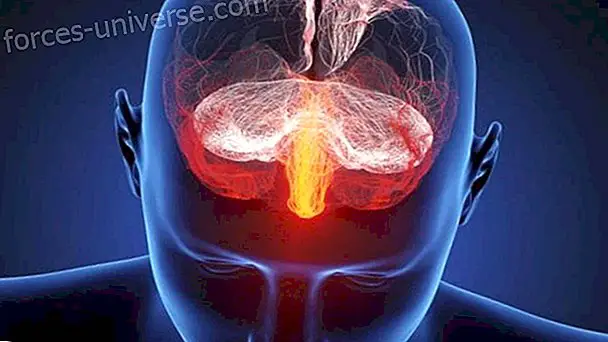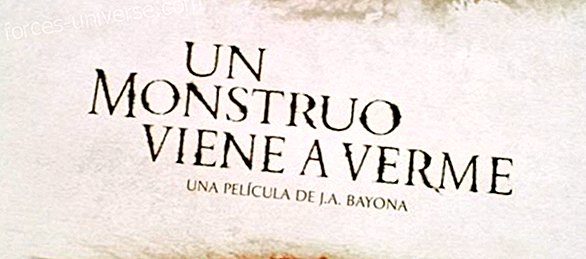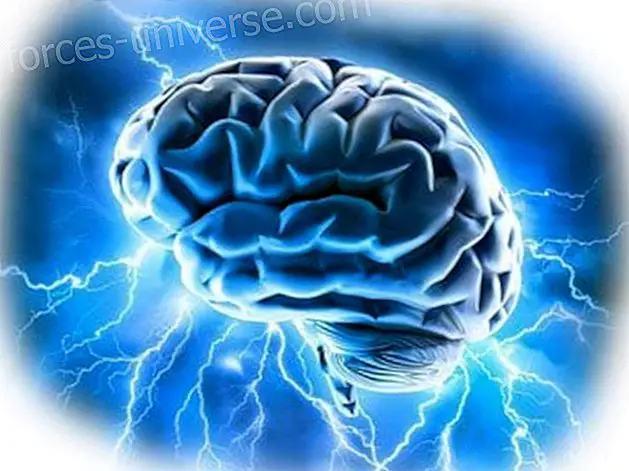Robert Havighurst: Learn his theory of evolutionary tasks and his criticisms from transpersonal development
- 2019

Within the theories of human and transpersonal development, it is convenient to present one of the postulates or organicist models of adult development. Such an approach is that of the evolutionary tasks proposed by physicist and educator Robert Havighurst, who influenced psychology by realizing a theory about the life cycle of existence, influenced by Freud's psychoanalysis, and the evolutionary stages of the deployment of the self, established by Erikson .
In the same way as the latter; Havighurst developed his theory by dividing the existence of the human being through a series of stages ranging from birth to old age, these are: childhood and early childhood (from 0 to 6 years old), childhood-puberty (from 6 to 12 years old) ), adolescence (12 to 18 years), adulthood (19 to 30 years), middle age (30 to 60 years) and old age (60 years and older).
What is Robert Havighurst's theory?
Robert Havighurst assigned to each period a series of "evolutionary tasks." Evolutionary tasks refer to all those activities carried out by the individual, aimed at goals, objectives and challenges depending on the character, physical-motor maturity and biological, psychological and social needs, framed in the relationship with the other, society and the culture As for the principles of evolutionary tasks, Salgado (2016) states that these consist of:
- Individuals carry out tasks throughout their lives that are conditioned by culture.
- Each stage in the development is characterized by tasks carried out by a common individual.
- Development tasks are determined by society.
- The requirements of each stage increase in complexity, as it matures.
- To succeed and achieve happiness you have to overcome each stage by fulfilling the tasks that characterize it. (p. 8)
In this sense, the evolutionary tasks - proposed by Robert Havighurst - are carried out within the dialectical framework, for the satisfaction of himself within the standards of society, that is: the adult subject becomes a specific denial, whose limits it shows that which is not, but that is objectified in culture (as an other, or a "no-me" symbolized by ethicity, law, art and religion) to return to itself and adapt (and in some cases overcome) under these symbols.
However, in this way, the subject becomes a slave or servant of the social pattern, and who exercises power [1], to end up building the same culture, or the "volkgeist " [2]. However, it is vital to ask to what extent the soul of the young adult, mature and older, has done of himself, what others have done of him, losing his individuality in the collective?
We must remember what the great CG Jung says about the archetype of the "person"; in itself, the person does not exist, but is a collection of reified attributes given by society . According to Jung (cited by Capriles, 2008): "It is a compromise between the individual and society about what man should appear to be" (p.87). That is, the person is an archetypal component of the social spirit, if the self identifies with it, it loses and produces a breakdown in individuation .
What are the evolutionary tasks of young, mature and older adults?

The evolutionary tasks given by Robert Havighurst to the person in the development of adulthood will be explained below:
ADULTHOOD | EVOLUTIONARY TASKS |
18-30 years |
|
30- 60 years. |
|
More than 60 years |
|
Role of aging in adult life

On the other hand, from the middle adulthood, the process of successful aging begins, here Robert Havighurst, tries to describe the paths that older people must follow to meet the demands of their age and reach a high degree of satisfaction in their lifetime. Vital satisfaction thus becomes the central psychological construct, by adapting and accepting the vortexes of life changes.
Therefore, optimal or successful aging is linked to a continuous active lifestyle . Older people should extend their usual activities as much as possible and seek new alternatives for those others that must be interrupted by age mandate. For Izquierdo (2005) referring to Havighurst's theory; The basic postulate of the mature adult would be that:
Maturity and old age lead psychosocially to a slow withdrawal of the elderly. The engine of this withdrawal can be the person himself, but also his environment. The withdrawal does not need to be uniform and parallel in all environments. The possible imbalance can be saved by a new change in relationships and the environment. Often, society values this process positively, considering it as a natural biological event, for example, when older people must give up their jobs to young people. (p. 609).
As stated, Havighurst's theory examines evolutionary tasks as a static network of activities and roles that the subject must fulfill before and within society, but does not ask about the conditions of possibility of said tasks related to the process of individuation (or what the ancients called "initiation " of the psyche ) or emotional subjectivity.
In this sense, Robert Havighurst conceives the adult as a being who has a role not so active, but rather passive within society, forgetting a bit the role of the transcendence and transformation of the soul, and the dimension of human desire, which according to the Hegelian and psychoanalytic phenomenological perspective, it generates class struggles, warlike and libidinal character; still lived, by adults today. However, this theory in disregarding the aforementioned, partly reflects the superficiality of society. Therefore, there may be a frivolous way of considering art, science, philosophy and religion that are the four paths to the evolution of the adult spirit, and the transformation of every society to come.
Author: Kevin Samir Parra Rueda, editor in the big family of hermandadblanca.org
REFERENCES:
- Capriles, A. (2008 ). The mischievousness of the Venezuelan or the triumph of Uncle Rabbit . (5th reprint). Caracas, Venezuela: Taurus.
- Izquierdo, A. (2005). Developmental psychology of adulthood Theories and contexts . Complutense University: Madrid. Complutense magazine of education, volume 2.
- Salgado, H. (2016). Robert's development theory. J, Havighurst . [Online Document] Available: https://prezi.com/m6xy1vpedfjy/teoria-del-desarrollo-robert-j-havighurst/ [Accessed: February 18, 2018].
[1] Generally the political construct that is the reflection of the social structure.
[2] Tr. Spirit of the people.






